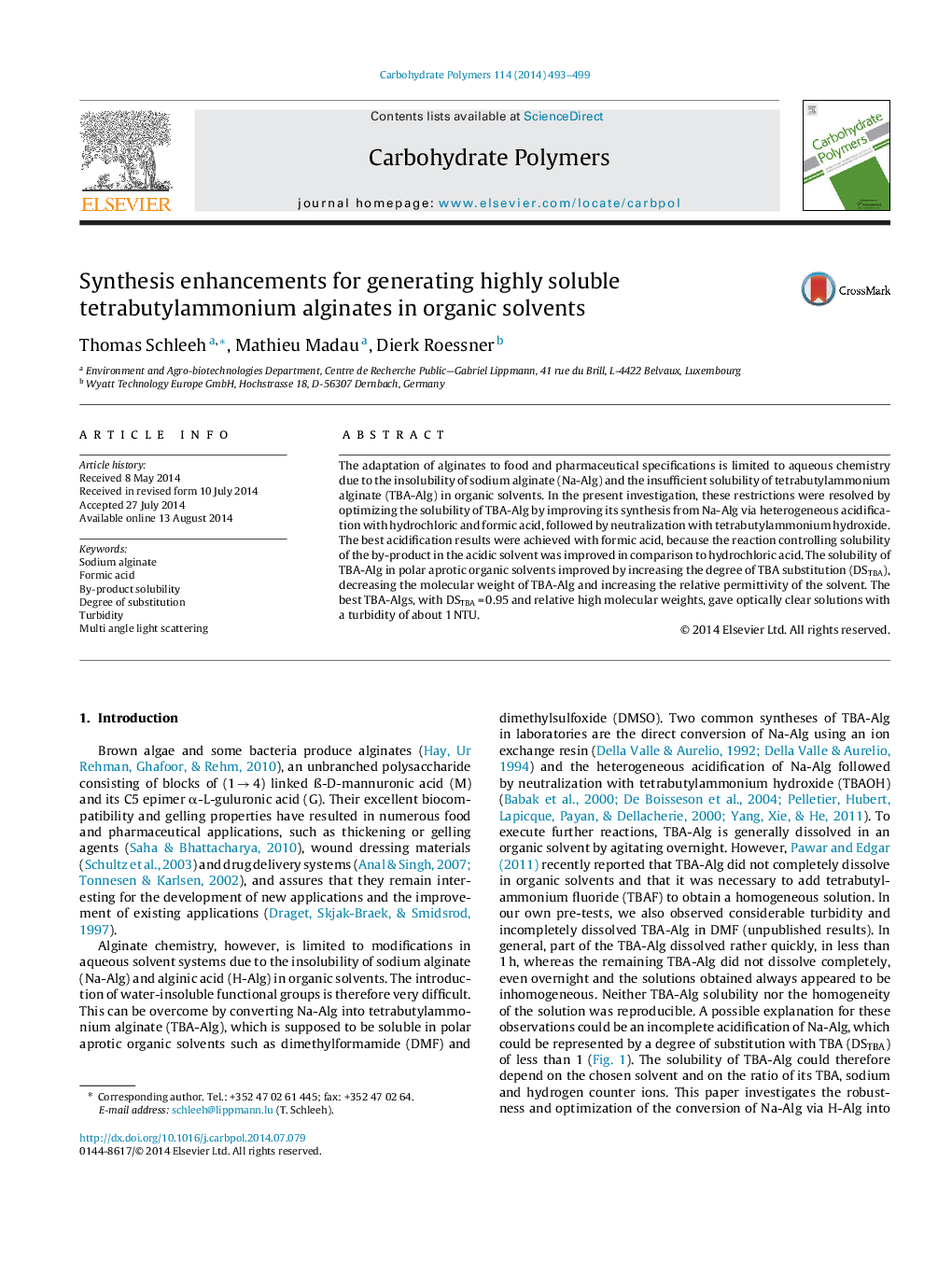| Article ID | Journal | Published Year | Pages | File Type |
|---|---|---|---|---|
| 7790784 | Carbohydrate Polymers | 2014 | 7 Pages |
Abstract
The adaptation of alginates to food and pharmaceutical specifications is limited to aqueous chemistry due to the insolubility of sodium alginate (Na-Alg) and the insufficient solubility of tetrabutylammonium alginate (TBA-Alg) in organic solvents. In the present investigation, these restrictions were resolved by optimizing the solubility of TBA-Alg by improving its synthesis from Na-Alg via heterogeneous acidification with hydrochloric and formic acid, followed by neutralization with tetrabutylammonium hydroxide. The best acidification results were achieved with formic acid, because the reaction controlling solubility of the by-product in the acidic solvent was improved in comparison to hydrochloric acid. The solubility of TBA-Alg in polar aprotic organic solvents improved by increasing the degree of TBA substitution (DSTBA), decreasing the molecular weight of TBA-Alg and increasing the relative permittivity of the solvent. The best TBA-Algs, with DSTBAÂ =Â 0.95 and relative high molecular weights, gave optically clear solutions with a turbidity of about 1Â NTU.
Related Topics
Physical Sciences and Engineering
Chemistry
Organic Chemistry
Authors
Thomas Schleeh, Mathieu Madau, Dierk Roessner,
